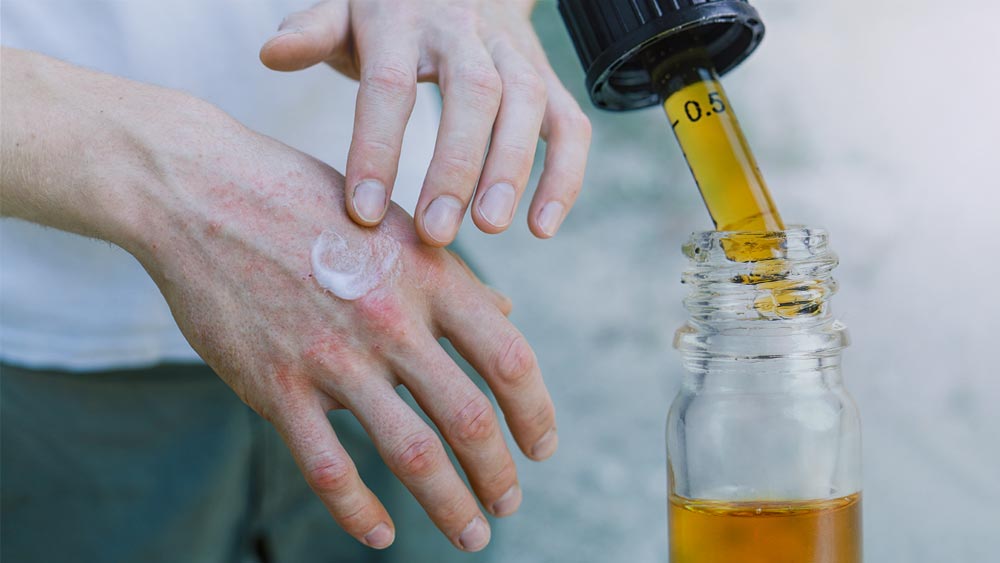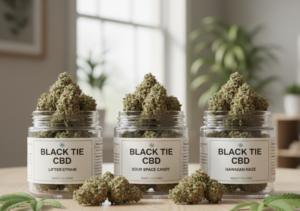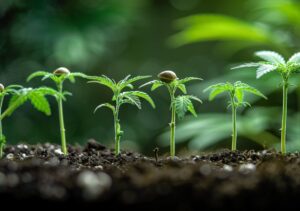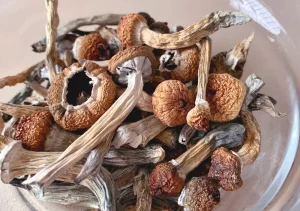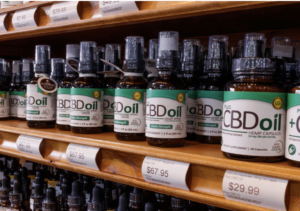Eczema (also known as dermatitis) is an umbrella term covering several different conditions, all of which result in excess inflammation of the skin.
Since each specific type of eczema can be caused by a variety of different reasons, CBD alone isn’t capable of completely curing eczema.
But, there’s a growing body of work pointing to the fact that CBD works wonders for inflammation, which is the main symptom that all eczemas share.
So, even though CBD probably can’t eliminate the condition, research is showing that it can be utilized to keep the unwanted inflammation at bay.
Let’s check out the studies.
Contemporary Research on CBD and Inflammation
It’s important to mention that the majority of scientific works on CBD are still being performed on animals, primarily because of the complicated legal status of both hemp and cannabis.
Luckily the worldwide viewpoint on these plants is gradually changing, and currently, there are multiple CBD studies with human participants. Unfortunately, none of them are specifically aimed at inflammation.
This will certainly change in the years to come. Until then we can draw conclusions from the available research.
A 2016 study showed that a topical application of CBD diminished both inflammation and pain for rats suffering from arthritis and that no side effects were noticeable.
A study from 2012 reported that CBD lowered inflammation in mice suffering from acute lung injury.
The team in charge of this research concluded: “Cannabidiol (CBD), a non-psychotropic cannabinoid component of marijuana (Cannabis sativa), has potent immunosuppressive and anti-inflammatory properties.”
Other research pointing to the benefits of using CBD for inflammation includes three 2011 studies:
- For inflammation caused by oxidative stress
- For chronic inflammation of the gut
- For neural inflammation caused by Alzheimer’s disease
Also, a 2007 study found that orally-taken CBD (in the form of oil/capsules) is effective for chronic inflammation and neuropathic pain.
The assortment of aforementioned studies shows that CBD has the ability to diminish various types of inflammation.
CBD Dosing for Eczema
The most important aspect of CBD dosing is that people react differently to it, which means that users require different doses to achieve the same effect.
This is mostly due to personal differences like age, overall health and unique body chemistry.
Another crucial factor is that some users require a “build-up” period before they start noticing the beneficial effects of CBD.
The main hypothesis to why this happens is because some people have a dysfunctional endocannabinoid system.
The endocannabinoid system (also known as the ECS) is a collection of cells in the body in charge of maintaining optimal function (homeostasis), through which CBD (and other cannabinoids) produce their effects.
The majority of vertebrates have an ECS, including all mammalian life on Earth.
The malfunctioning ECS is also speculated to be tied with the development of several illnesses.
By exposing the body to CBD, the user gradually “kickstarts” the endocannabinoid system.
This process will last for several weeks for some people, while others will require more time.
On the other hand, if your ECS is functioning properly, you’ll begin noticing the beneficial effects right away.
Another crucial aspect of CBD usefulness is the different dosing requirement.
Some users require relatively small doses to achieve the desired effect, while others have to consume much larger doses to achieve the same effect.
This factor is also attributed to the overall health and function of the ECS.
Generally speaking, most users find relief with doses ranging from 20mg to 40mg of CBD per day, while others require more (or less) to get to the same level of relief.
Studies have shown that CBD is safe and well-tolerated even with colossal doses (1,500mg per day).
To conclude, finding the adequate CBD dose is very much a personal journey.
Users are advised to keep a journal in order to keep track of the doses they consume, and of different effects that the doses produce.
Let’s Say You Start with…
…a daily 20mg dose of CBD.
If nothing seems to happen, this probably means that your ECS isn’t functioning properly.
Continue with the 20mg daily dose to “awaken” your endocannabinoid system.
Once you start noticing the effects (or if you notice them right away), you need to figure out if the 20mg dose is too much, or too little.
If you experience fatigue, irritability, nausea, or any other side effect (all side effects are listed below), you probably need to lower your daily intake.
If you don’t experience any side effects but you’re under the impression that the beneficial effects could be more powerful, increase your daily dose by 10mg, and see how you’re feeling.
Again, if you don’t have any adverse effects and think that a higher dose would give you greater relief, feel free to increase your daily intake.
Just remember to keep track of everything to avoid confusion.
Potential Side Effects of CBD
It’s also important to mention that some people experience adverse effects during their CBD treatment.
This doesn’t happen to everyone, actually only a small percentage of users experience side effects.
The main ones include:
- Nausea
- Diarrhea
- Issues with appetite
- Tiredness (only with large doses)
- Irritability (only with large doses)
Luckily the adverse effects of CBD can’t be considered too hazardous, and currently, the only way to determine how CBD will affect you is to try using it.
Interactions with Other Medications
If you’re using any prescription or over-the-counter drugs, it’s important to know that CBD interacts with all drugs that are metabolized by the CYP3A4 enzyme.
CBD interferes with the metabolization of these drugs because it is also metabolized by this enzyme.
This basically means that if you’re using both substances at the same time, chances are that either CBD (or the other drug) won’t get broken down (metabolized) inside the body, which is potentially hazardous.
Drugs that are metabolized by the CYP3A4 enzyme usually have a grapefruit warning on the packaging, because grapefruit juice also interferes with the functioning of this enzyme.
While most medications have a grapefruit warning, some drugs don’t.
If you’re using any anti-inflammatory (NSAIDs or steroid) or any other type of drug for your eczema, please take the time to read the insert inside the packaging to find out if the drug in question interferes with the CYP3A4 enzyme.
